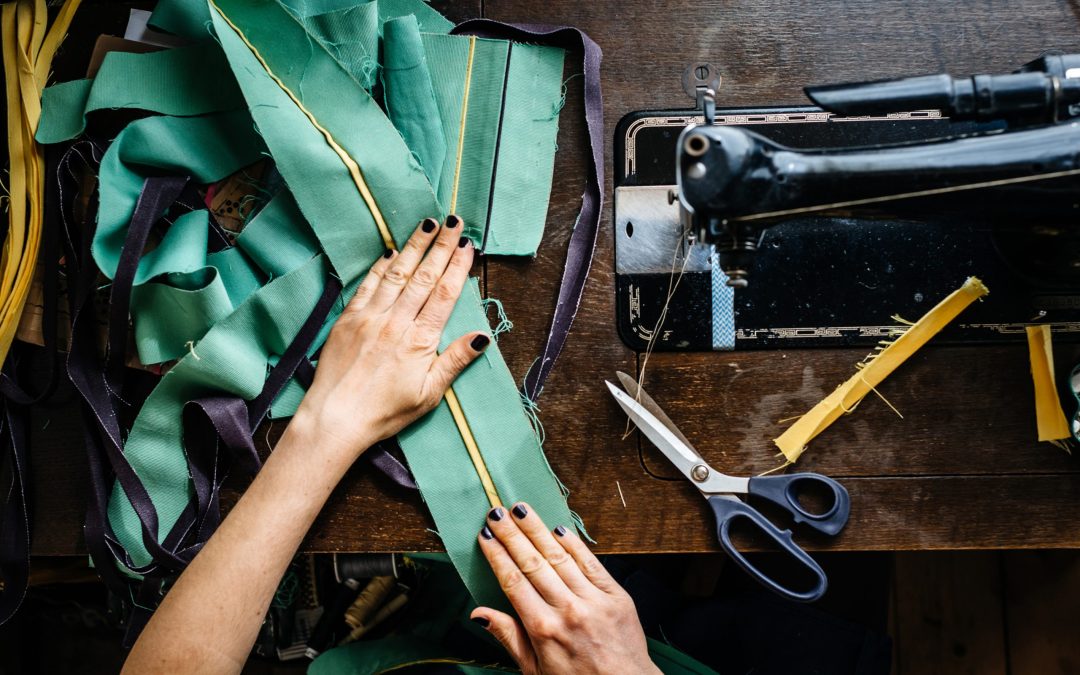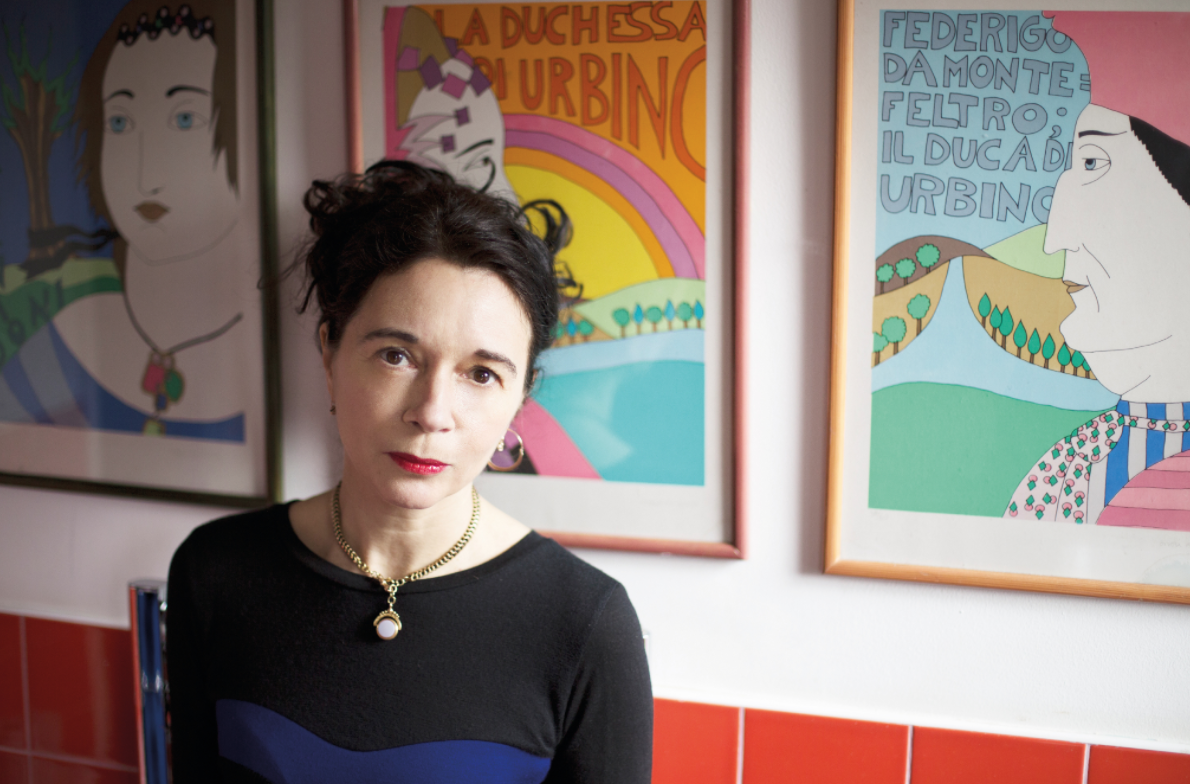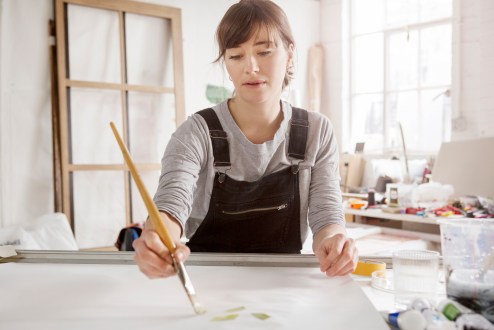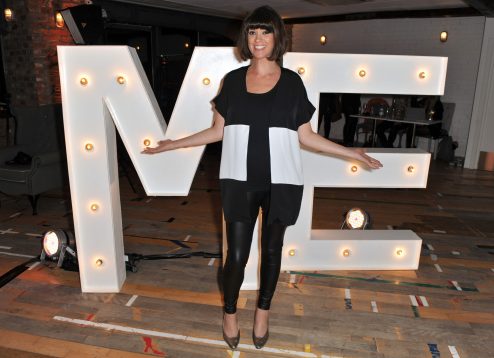Using creativity for gentle protesting and activism
Catherine Larner meets the new ‘quiet’ activists, who use creativity and individuality to get their message across, rather than division and conflict

Sarah Corbett: using craft to connect heart and hands
Formerly a professional campaigner, Sarah Corbett now makes her point through embroidered messages. She was named the Sheila McKechnie Economic Justice Campaigner of 2016.

My first direct political act was joining my parents squatting in social housing to save it from demolition when I was three. I went on to become a professional campaigner, but I struggled with the noise and the anger. I didn’t like telling people what to do.
On a long train journey, I picked up a cross-stitch kit and noticed it made me more mindful. Craft is quiet and repetitive and naturally meditative. I was able to focus and be strategic, and ask myself difficult questions.
I began to stitch miniature banners embroidered with provocative messages about social justice, and I’d hang them in places relevant to issues I cared about. I find that people are more intrigued and spend time looking at something that is cute or beautiful, and will speak to the person who made it.
In 2009, I set up the Craftivist Collective to help people become effective ‘craftivists’ and good global citizens. We use craft as a tool to create quiet, thoughtful and compassionate activism as a catalyst for long-term positive change in our world and in ourselves.
Letters to MPs became ‘Don’t Blow It’ hankies, a petition was made into bunting, graffiti slogans were fabric collages pinned to garage doors, and protest posters were mini cross-stitch banners. The message has proved more memorable and powerful being presented in this way.
Craftivist Collective was asked by ShareAction to help lobby Marks & Spencer to pay the Living Wage. We hand-stitched handkerchiefs and sent these with handwritten letters to be delivered to seven members of the M&S board on the day of their AGM.
We had researched each person and used quotes from people we knew they respected and colours we knew they liked. This led to a series of meetings, with M&S ultimately committing to paying the Living Wage. We’ve been told that our campaign played a large part.
Gentle protest is careful and courageous. It’s a technique the best activists in the world used, from Gandhi to Martin Luther King Jnr, and it’s the thread I think should run through all craftivism and activism. Craft connects your hands, your heart and your head, and when you connect that to justice issues, I think it can be world-changing.
‘How To Be A Craftivist: The Art Of Gentle Protest’ by Sarah Corbett (Unbound, £12.99) is out now. To learn more, see craftivist-collective.co.
Carry Somers and Orsola de Castro: accountable fashion
Fashion designer and educator Orsola de Castro, with Fairtrade pioneer Carry Somers, started Fashion Revolution in 2013, an international campaign demanding transparency and accountability in the fashion industry.

There was a very strong feeling after the Rana Plaza disaster in 2013 that something had to stop. Five garment factories in Bangladesh, supplying global clothing brands, collapsed, killing 1,138 workers. I realised that we needed to know who the people were who made our clothes.
I joined with fellow designer Carry Somers and a group of people who had collaborated in the sustainable fashion movement for some time, and we put forward a campaign on social media. We urged people to ask brands #WhoMadeMyClothes and to post a picture showing the label of what they were wearing. Anyone could get involved.
This year, there were 113,000 Instagram posts and 533 million impressions on social media, and we also had many celebrity supporters and influencers. Makers now respond with #IMadeYourClothes. In 2017, we heard from 5,200 garment workers.
A massive factory in India with over 100,000 employees began a website this year to show us the story of the garments the workers sew. We are mindful that no brand is ever confronted directly; we’re not a negative space.
Brands are beginning to understand that sustainability and transparency is best practice and that we’re moving towards a society where they need to be responsible for their supply chain. We have shown clothing brands that people want to know these stories.
None of us had any experience of campaigning, so its success was first time lucky! I feel it was due to being so naive and spontaneous. The realities of the fashion industry affect 100 per cent of the population.
We want everyone to find their own unique way to be part of the solution, whether it’s by buying less, mending, swapping or loving our clothes longer. Nothing is ever too small – from the tiniest action, you can go on to make a huge difference. Be curious, find out, do something. Find out more and get involved here.
Anneke Scott: proactive postcard-writing
British musician, Anneke Scott, sends MPs postcards from wherever she is performing in Europe, to stress the impact of Brexit on her working life.

It was a couple of months after the referendum and I had this sense of limbo, not knowing what form Brexit would take. Every day, I was being forwarded some new petition. I clicked them, hoping it would make a difference, but no one was addressing my particular issue.
I’m a horn player working with dozens of European orchestras, and I’m constantly travelling. We currently have freedom of movement but if bureaucratic or financial barriers are imposed, British musicians are unlikely to be engaged by orchestras who work with tight budgets.
I consider myself politically engaged and had written to MPs before. It struck me that postcards, dropping through the postbox day after day, would be a tangible way of illustrating what my working life involves and what we are at risk of losing.
There’s an app on my phone which turns photos into the ‘cover’ of postcards. Now, whenever I’m in the EU, I take a snap of the view from my seat in the orchestra. It may be when we are rehearsing, showing the conductor or my fellow musicians sitting alongside me, or it might be a picture of the venue looking out to our audience.
I’ll write a short message saying where the picture was taken and what I was doing, and sign it o with a request that the MP help ensure that we continue to work freely in the way we are now. I also send them to the Musicians’ Union which sends each member a postcard, urging them to pass it on to their MP.
We hear ‘little and often’ is a good approach and it certainly is the case with campaigning. Most evenings, I’d spend a few minutes and it was done. You don’t have to say much and it is more personal than an email.
For a long time, I felt these postcards were going into a void, making no impact. Then I went to a meeting at the Musicians’ Union and they spread out my postcards in front of me. In five months, I’d sent over 300 to MPs. That was when I realised that every single one was adding up to something bigger.
It is possible for your voice to be heard. The Musicians’ Union (MU) is calling on MPs to support musicians working in the EU with #WorkingInTheEU See musiciansunion.org.uk and annekescott.com.
Images: istock, Sarah Corbett, Tamzin Haughton, John Croft.








